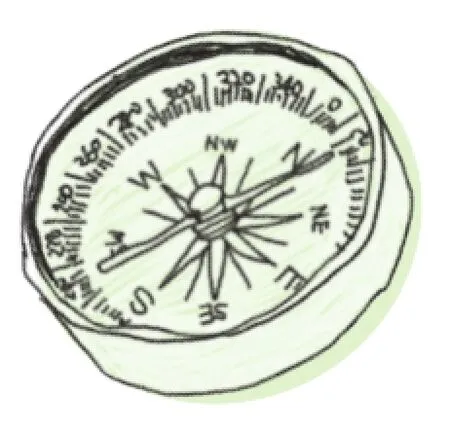口语步步高(四)
2017-04-07杜倩供稿
杜倩供稿
口语步步高(四)
杜倩供稿
一 功能口语
1谈论国家、国籍、语言
同学们身边都有自己的学习伙伴,但有笔友(pen pal)的同学应该不多吧?同学们想有笔友吗?我们又该如何去认识笔友呢?要交笔友的话,我们先要学会谈论国家、国籍、语言,问答人们来自哪里。
常考口语⇁
Where is your pen pal from? 你的笔友是哪里人?
Where does he live? 他住在哪里?
I can speak English and a little French. 我会说英语和一点法语What language does she speak?她讲什么语言?
免费套餐⇁
Where do you come from? 你来自哪里?
Where does your pen pal come from? 你的笔友来自哪里?
My pen pal comes from Korea. 我的笔友来自韩国。
They come from Russia. 他们来自俄罗斯。
I speak Chinese. 我讲汉语。
He speaks Japanese and a little English. 他讲日语,也讲一点
I live in Beijing. 我住在北京。
快乐剧场⇁
A: Excuse me. Where are you from? B: I’m from England. What about you?
A: I’m from Shandong. My home is in Qingdao. B: Oh, Qingdao is a beautiful city.
A: Thank you. Well, what do you do? B: I’m a student. What about you?
A: I’m a student, too. B: Can you speak English?
A: Only a little. It’s too diffcult. B: Don’t worry! Let me help you.
A: Thanks a lot. B: Not at all.
背景知识⇁
在本单元中出现了许多地名和表示语言的名词,希望同学们能认真加以记忆,可以将“某国人讲某种语言”这样连起来记。例如:
1) Englishmen are from Britain. They speak Britain English.
2) Americans are from America. They speak American English.
3) Australians are from Australia. They speak Australian English.
4) Canadians are from Canada. They speak Canadian English and French.
2问路和指明方位
当我们找不到路,需要向别人问路的时候,注意要有礼貌;当别人向我们问路时,我们要热情回答。
常考口语⇁
Is there a bank near here? 这附近有银行吗?
There’s a bank on Center Street. 中央大街那儿有一间银行。
The pay phone is across from the library.付费电话在图书馆对面。
The park is next to the bank.公园在银行隔壁。
The supermarket is between the post offce and the video arcade[电子游戏室].超市位于邮局和电子游戏中心之间。
Where is the park?公园在哪里?
Excuse me. Is there a hotel in the neighborhood? 打扰一下,请问这附近一带有旅馆吗?
Just go straight and turn left. 一直往前走,然后左拐。
免费套餐⇁
1. 问路的常用句型
— Excuse me. Can you tell me how to get to the library? 打扰一下,您可以告诉我到图书馆怎么走吗?
— Go straight to the next crossing and turn left.一直走到下一个十字路口,然后左转。
— Which side of the street will it be on?它会在街道的哪一边?
— It’ll be on your right side. You can’t miss it. 它就在你的右边。你一定找得到的。
2. 指路时常用如下说法
1) Go down this street (road). 沿着这条街(路)往前走。
2) Go up this road to the end. 沿着这条路,一直走到尽头。
3) Turn right (left) at the frst (second) crossing. 在第一(二)个十字路口向右(左)转。
4) Take the second turn on the left. 在第二个路口左转。
3. 指示确切地点
1) It’s just across the street.就在街的对面。
2) It’s that building over there.那边那座楼就是。
3) It’s right near here.就在附近。
4) It’s next to the store.就在商店旁边。
5) It’s between the post offce and the cinema.就在邮局和影院之间。
快乐剧场⇁
A: Excuse me.
B: Yes? What can I do for you?
A: Could you tell me the way to Zhongshan Park?
B: Well, let me see. Go along this street, and then turn left at the second crossing…
A: Oh! I’m sorry! I can’t follow you. Please say that again more slowly.
B: OK. Go along this street, and then turn left at the second crossing.
Go on until you reach the end of the street, then you’ll fnd it.
A: Is it far from here?
B: Yes, it is. You’d better take a bus. The bus stop is just over there.
A: Thank you very much.
B: You’re welcome.
背景知识⇁

1) 问路时一定要有礼貌。一定要先说一声“Excuse me.”(打扰一下。/不好意思。),这样既可以引起对方的注意,又不失礼貌。
2) 指路的人最后常会加上一句“You can’t miss it.”(你不会找不到的。)。问路的人最后要表示感谢“Thank you (very much). /Thanks.”(谢谢你。),注意要用降调,这样显得更真诚。
3) 如果不能给别人指路常说“Sorry, I’m new here, too.”(对不起,我也是新来的。),这时问路的人常说“Thank you all the same.”(还是要谢谢你。)。
二 口语一点通
1 Did you read today’s paper? 你看今天的报纸了吗?
— Did you read today’s paper? 你看今天的报纸了吗?
— No. Why? Was there anything special? 还没有。怎么了?有什么特别的新闻吗?
分析▲“today’s paper”是“今天的报纸”;“早报”是“morning paper”;“晚报”则是“evening paper”。“报纸”这个词在口语中常用“paper”来代替“newspaper”。像这样省略的例子还有很多。例如:
1) necktie → tie 2) refrigerator → fridge 3) telephone → phone
4) television → TV 5) bicycle → bike
2 How often do you call your parents? 你多久给父母打一次电话?
— How often do you call your parents? 你多久给父母打一次电话?
— Almost every night. 几乎每晚都打。
分析▲要询问事件发生的频率,最常用的就是“How often...?”。当有人问你“How often…?”,你就要用表示频率的词或短语来回答。例如:
1) Once or twice a month.(每个月一到两次。)2) Twice a week.(每周两次。)
3 Feel free to ask me any questions. 有问题尽管问我。
— Feel free to ask me any questions. 有问题尽管问我。
— Thank you. I will. 谢谢你。我会的。
分析▲若把“feel free to...”直译,就成了“请自由地……”;若要译成通顺的中文则应是“请随意……”或是“请……,不用客气”;在劝诱或催促别人的时候,这种说法便可派上用场。例如:Mr. Johnson, feel free to take off your coat. It’s warm here.(约翰逊先生,您不妨把外套脱下来。这里很暖和。)
4 He just wanted to say “Hello.” 他只是想问候一声。
— Richard called me last night. 理查德昨晚打给我了。
— What did he say? 他说什么了?
— Nothing much. He just wanted to say “Hello.” 没说什么。他只是想问候我一声。
分析▲“say “Hello.””直译就是“说‘你好’”;但它真正的含意是“问候一声”。如果你想说“请替我向他问好”,就可以说“Say “Hello” to him for me.”。
5 Good girl! 好姑娘!
— Dad, I got an A in maths. 爸爸,我数学得了A。
— Good girl! I’m so proud of you. 好孩子!我以你为荣。
分析▲在美国,从小学到大学,成绩通常都是以A(Excellent优)、B(Good良)、C(Average普通)、D(Below Average低于平均值)和F(Failed不及格)来区分五种不同的等级。“Good girl!”是表扬女孩子的,表扬男孩子自然要用“Good boy!”。
6 I feel the same way. 我有同感。
— I think Chinese people are hard workers. 我觉得中国人工作都很勤奋。
— I feel the same way. 我有同感。
分析▲“hard”是“困难的”的意思,在口语中常用来代替“difficult”。在此则是另一种意思,表示“勤奋的”,所以“a hard worker”就表示“勤劳工作的人”。“way”表示“方式,方法,路”,对话中的句子若是直译,就成了“我感觉到同样的方式”,其实意思就是“我也这么觉得”或“我有同感”。
